-
Processionary caterpillars in France: how to protect your dog
The insects can be fatal to dogs if they lick or ingest them
-
‘It’s becoming intolerable’: homeowners in France move north to escape the heat
Heatwaves becoming more regular and intense
-
Avalanche deaths in France: Why so many this year?
There have already been 12 deaths since Christmas
Greenpeace France: Tackling climate change is our priority
‘France is one of the very rare countries with a long coastline which does not yet have even one offshore wind turbine,’ the head of the association in France tells The Connexion
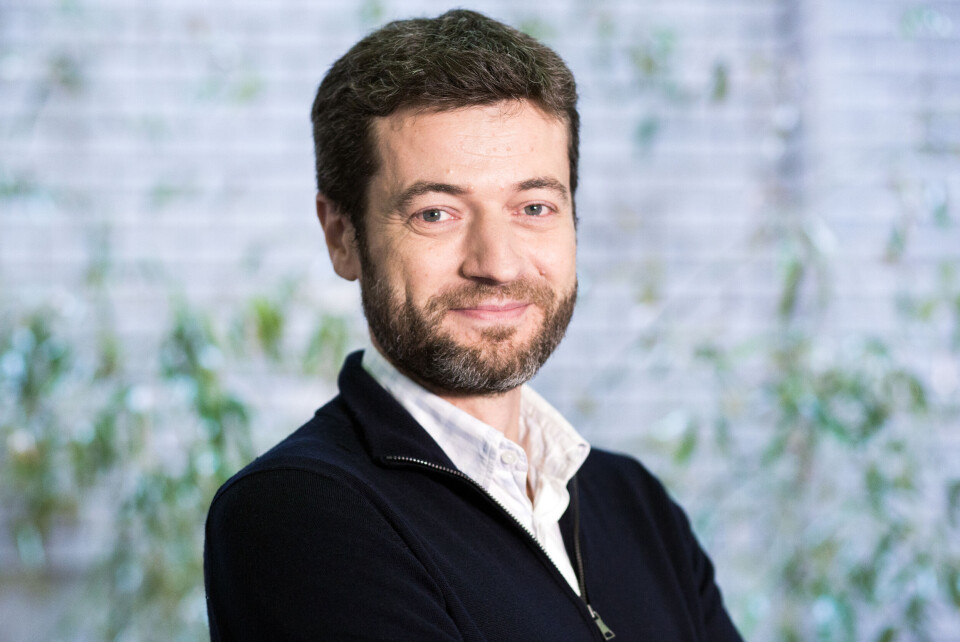
Fifty years ago on September 15, 1971 a small group of individuals set off in a fishing boat called The Greenpeace to try and stop a US nuclear weapons test at Amchitka Island. Their action led the US to cancel their programme on the island, later declared a bird sanctuary. Half a century later, Greenpeace has grown to an international body fighting environmental issues on many fronts.
Greenpeace France was created in 1977 and is less than 50 years old but was one of the first Greenpeace offices created in Europe. After the first one in Canada in 1971, Greenpeace spread quickly across the Anglo Saxon world and then Europe.
It started with a very small office in France and then grew.
Jean-François Julliard, Greenpeace’s executive director in France, speaks about the movement’s history, its involvement today in the country's green transformation, and shares his thoughts on the world’s situation.
How many members are there in France today?
There are 240,000 members, 140 employees and around 1,500 active volunteers who take part regularly in our activities which can vary from distributing fliers, talking to the public in different parts of France about our actions, and so on.
What are the most important campaigns in France?
Our priority, as it is for Greenpeace everywhere in the world is the fight against climate change. We try to do everything to reduce greenhouse gas emissions, in the sectors which are the most responsible for emissions.
Here in France we work on a number of different subjects.
A priority is the use of petrol in transport. We highlight what the petrol companies are doing, in particular Total, which is French and one of the biggest in the world.
We look for solutions for public transport and air pollution.
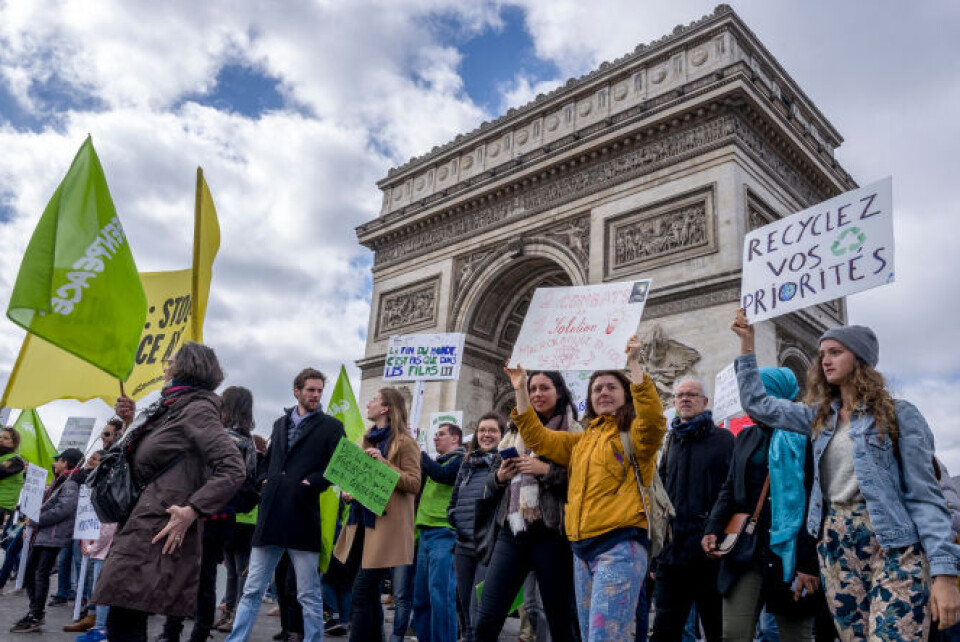
We are concerned about air travel and the impact of planes on the climate.
Our second subject is agriculture and food and the protection of the forests, as a great deal of the impact of deforestation is linked with what we eat and how we feed the animals we then consume in European countries, and in particular, in France. So we are interested in the transformation of the farming world and the way we feed our animals. We encourage people to eat less meat and fish and more vegetarian dishes.
The third very important subject is energy production so we work a great deal on the development of renewable energies, the reduction of energy consumption, the renovation and the insulation of buildings. We campaign to reduce our dependence on nuclear energy, because in France we are extremely dependant on nuclear power, more than other countries in the world.
Greenpeace has always been known for its anti-nuclear campaigns. In recent months there has been a great deal of criticism of wind turbines as an alternative. Does Greenpeace support wind power?
Wind turbines are necessary, but they will not replace nuclear power alone. That will not work.
We are against nuclear power, because for us it comes with several serious problems; the risk of an accident, the accumulation of radioactive waste we do not know what to do with, the rising economic cost.
In France the construction of the new Flamanville Nuclear Power Plant in Normandy is ten years behind schedule which shows the country cannot manage to build nuclear reactors within the allotted timescale and budget. So we need to get out of nuclear power and we need to replace that with lower energy consumption, so more sobriety.
We must stop wasting electricity as we do today. We need to learn to live with less energy in Europe, where we use too much and then we will be able to share it out better across the world. We need renewable energies, but wind power is not the only solution.
There is also hydro-electricity and we have many dams in France, solar power, geothermal energy and biomass which can be fed by real waste from forests or domestic waste. There are several possibilities today which means we can produce energy without greenhouse gases and the risk of a nuclear disaster.
So for Greenpeace it is a false argument to say wind power can’t work because we would need a massive number all over the country to make any difference?
There has been a recent rise in the arguments against wind power but we know where that comes from. It comes from the nuclear industry which is frightened of renewable energies.
There are several associations against wind turbines, which are in fact backed by the nuclear power industry. It also comes from right-wing politics, and even the extreme right with Marine Le Pen, but there are other right-wing politicians too, who have suddenly come out very strongly against wind turbines because according to them they will disfigure the French landscape and they are inefficient, etc., etc.
These are false arguments because we can put wind turbines out at sea as well as on land. France is one of the very rare countries with a long coastline which does not yet have even one offshore wind turbine. All the northern European countries like Denmark and the UK have a lot, but not France. Even so it is clear that wind turbines will not replace nuclear power alone.
Le GIEC le dit : nous ne sommes pas prêt pour ce qui nous attend. Pourtant le climat occupe moins de 3% des débats de la #Presidentielle. Rejoignez notre appel 👇 https://t.co/z1PFeVmcIi #giec #climat #ipcc
— Greenpeace France (@greenpeacefr) February 28, 2022
The Government has recently voted for the Climate Law. Are there measures that you welcome and those that perhaps you do not?
Unfortunately, there are only a few that please us. Canteens in public schools, hospitals, industries, administration centres, SNCF etc will have to have one vegetarian meal a week on the menu and that is going in the right direction. It is one of our victories, because we campaigned for that and we are happy it has been included in the legislation.
But unfortunately many measures do not go far enough.
We asked for internal flights to be banned when they could be replaced by a train journey which would take less than 6 hours, but the government reduced that to two hours 30 minutes, which will in reality only affect three routes. And even then there will be exceptions. If the flight is the first hop in an overall longer journey, the shorter flight will be allowed. As we speak we are still waiting on the final decision, but we feel it will in the end only be a symbolic measure and will not have a real impact on the reduction of greenhouse gases.
Everything is a symbol with this government and everything is about communication. Emmanuel Macron has understood that climate is important for society in France and the world, so he talks a great deal on the subject and promises a lot, but when we look at what has really happened, we see there is a big difference between what is promised and what is delivered.
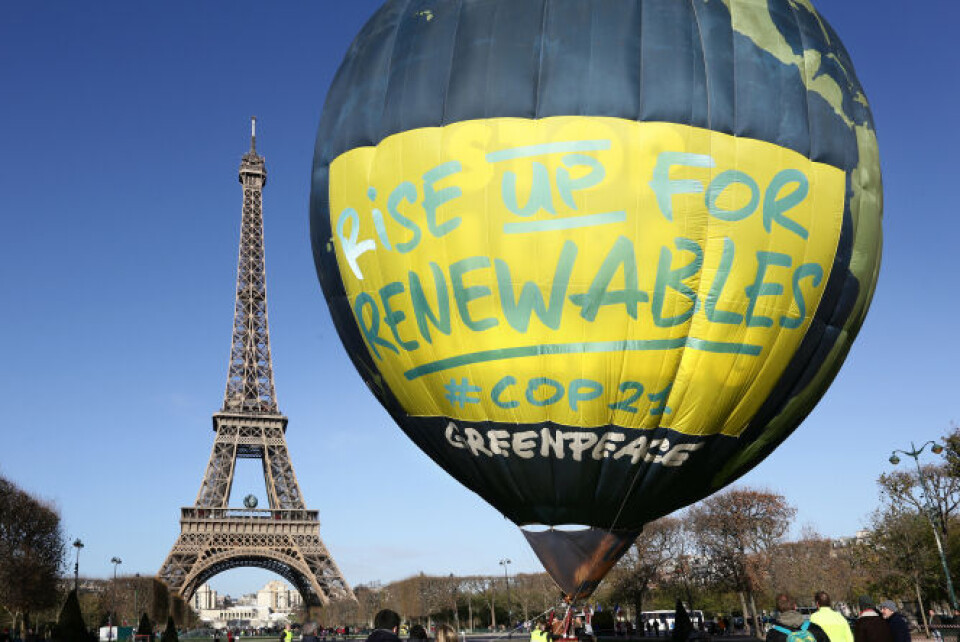
Greenpeace has a reputation for direct and often illegal action, such as entering nuclear power plants without permission. There are also publicity stunts, like the one this year, when a Greenpeace paraglider’s protest went wrong and instead of flying over a Munich stadium during a Euro-football match, he landed in it, injuring two people. Is that the way Greenpeace operates?
It is one of the ways in which we work, and we take full responsibility for these kinds of actions, because they can be used to inform the public on subjects which are often complex and they provoke debate. It is perhaps a spectacular way to act but we assume responsibility for our civil disobedience and even though we sometimes break the law, we think it is necessary and legitimate to get our message across.
But this is not the only way we work. Greenpeace has three boats which are permanently sailing all round the world to explore the oceans and to work on the problems of pollution.
Greenpeace is also studies by experts. Every year we publish several reports around the world on very varied subjects. For example, the impact of the car industry on greenhouse gases, and the textile industry on water pollution. We also go out and meet the public in markets, or in the streets to explain what we do, and inform them of the environmental issues and we take part in the big demonstrations like the March for the Climate, which we were very closely involved in. We also work a great deal on social media which is indispensable nowadays. We try to have as broad a range of different actions as possible.
Is the Rainbow Warrior, a symbol of Greenpeace, still in existence?
The boats are still very important to Greenpeace and one of them is our third Rainbow Warrior.
The first was sunk by French secret service agents in 1985 when the boat was in New Zealand waters to denounce the French nuclear tests at Mururoa Atoll in French Polynesia. Greenpeace photographer, Fernando Pereira was killed in the boat’s blast.
The second Rainbow Warrior served for a long time before it was transformed into a hospital boat in Bangladesh. Now we have Rainbow Warrior III which continues to circulate around the world. It is more than a boat.
It is everything which symbolises Greenpeace and shows we are willing to travel long distances and intervene physically where there are problems and keep up the fight to save the environment, because, sadly, we have not done so yet.
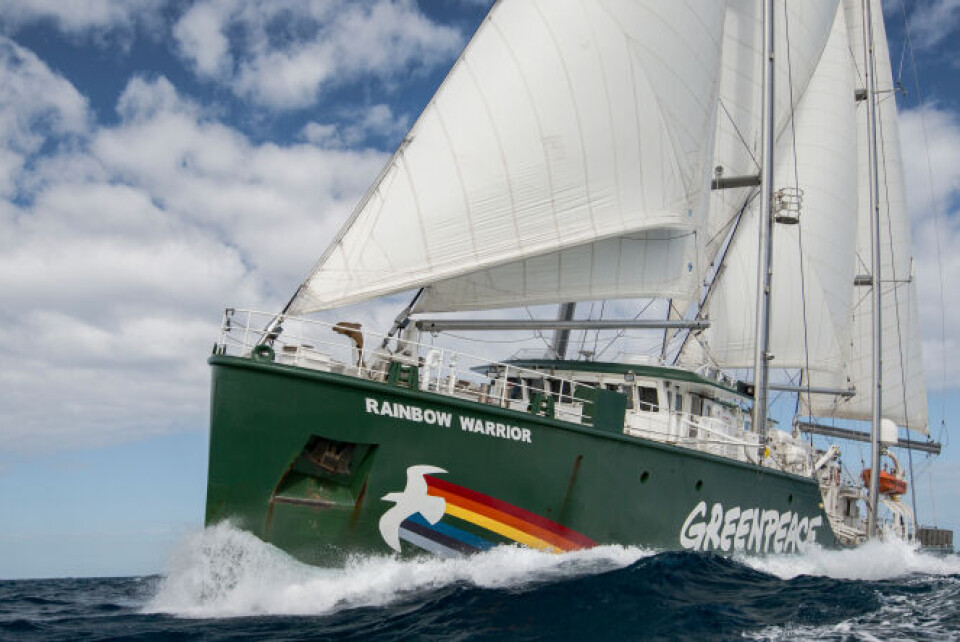
How has Greenpeace changed in 50 years?
The first campaign was against nuclear arms, and it was called Greenpeace because it was created both for the environment and for peace in the world.
Since then the themes have become much broader. We fight against deforestation, one of the major causes of climate change and the decrease of biodiversity, because when you cut trees down, often to make way for planting soya for animal feed, you destroy the local fauna and flora. We work for the protection of the oceans where there is so much pollution either from the exploitation of petrol and gas, or plastic use. And we work on all the subjects I listed earlier.
There are very many environmental concerns.
Is the world in a worse state than it was half a century ago?
I think it is worse. The figures for greenhouse gases have never ceased to increase. Air and water pollution have never been so bad. The pollution indicators are in the red.
However, we do know a lot more about the state of the planet than we did fifty years ago.
At that time there were very few people who were interested in the protection of the environment and there were not many scientists doing any research.
Now, there are far more, with far more research at our disposal so we know more about the health of the planet.
Are you optimistic or pessimistic about the future?
We stay optimistic at Greenpeace because, though there are not very many reasons to be complacent and we must not be naïve about the state of the planet, we must continue to act, to make a change.
We must continue and succeed in convincing as many people as possible; the politicians, the government with its very particular responsibilities, industry, big heads of business, and the general public that something has to be done, because everyone can play their part.
There are many ways to change things. Our transport, the way we buy our food and electronic equipment are all important choices for the protection of the environment.
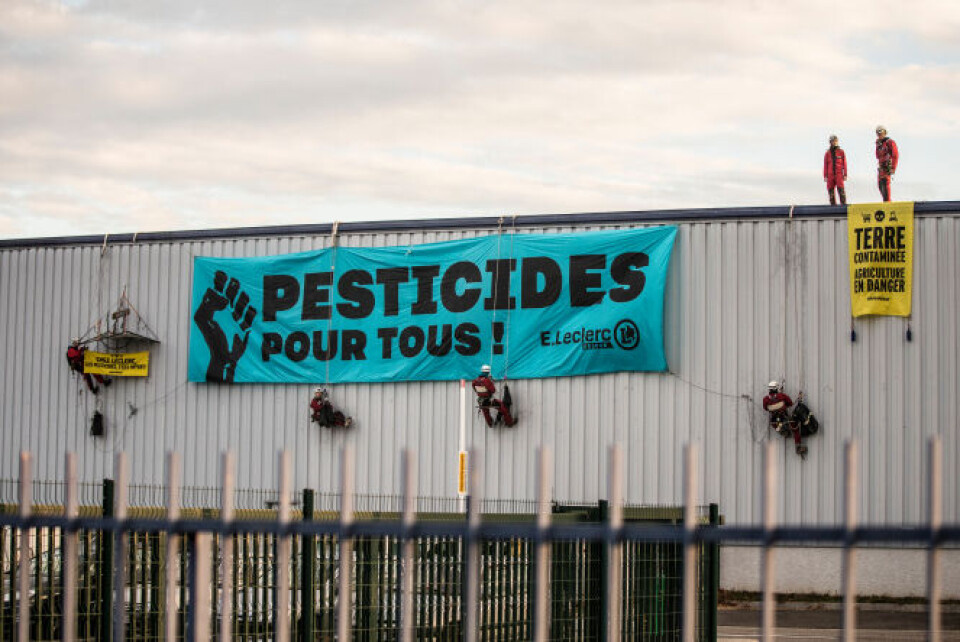
And if we want to be a Greenpeace member, does that mean we have to be someone who is prepared to break the law?
Not many of our members will go into a nuclear power station illegally.
As I said there are 240,000 members and the vast majority will research and share information by going onto the internet, and talking to others if they wish to.
There are 32 local groups in France you can join and where you can meet other members and maybe act locally by going out and informing the public. You can easily find our groups’ contact details on our internet site.
There are very many ways to take part in Greenpeace as well as acts of civil disobedience like blocking the entrance to Total France as we did recently at Paris, or painting an aeroplane green which we did at Paris-Charles-de-Gaulle airport, but these are effective ways of getting our message across.
Related stories:
Floods, heatwaves: New report predicts global warming effect on France
French court orders government to honour its climate promises
























